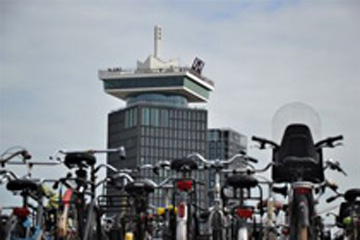
The conditions for the commencement of arbitral proceedings in the Netherlands include the following elements: there must be an agreement between the parties to arbitrate, which may result from a settlement or an arbitration clause in the general terms and conditions; the parties must appoint arbitrators who are independent and impartial; the proceedings must comply with the statutory provisions, including the manner of appointment of arbitrators and the requirements to be met by the arbitrators; and the place of arbitration may be determined by the parties even after the commencement of the proceedings, but it is advisable to check that the relevant provisions have been complied with. In addition, the bankruptcy of a party may affect the progress of the arbitration and the authority to commence or continue the arbitration.
Arbitration is a popular form of litigation in The Netherlands. The Dutch arbitration law framework is simple and easy to use. It is currently being developed to reflect all the latest features of international arbitration. With the upcoming amendments, the Dutch law provides a useful complementary legal mechanism to ensure that arbitrations in The Netherlands produce fast and enforceable awards. Our Dutch arbitration attorneys have the experience that you require regarding Dutch arbitration and would be happy to assist you in the Netherlands.
Opting for arbitration under Dutch law
Arbitration in the Netherlands is mainly used in :
- Commercial disputes requiring special industry knowledge (e.g. shipping disputes).
- the event that parties want to keep the dispute or contract confidential under which it arose.
- construction disputes.
List of Arbitration institutes
The majority of these arbitrations are held at arbitrators such as the:
- Arbitral Tribunal for the Graphic Industry Foundation
www.stivako.nl - Counsil of Arbitration for the Metal Industry and Metal Trade Foundation
www.sramh.nl - Counsil for Arbitration in the Construction Industry
www.raadvanarbitrage.nl - Dispute Resolution Foundation for Automation
www.sgoa.eu - International Chamber of Commerce
www.icc.nl - Netherlands Arbitration Institute (NAI)
www.nai-nl.org/en - Permanent Court of Arbitration
www.pca-cpa.org - P.R.I.M.E. Finance Foundation
www.primefinancedisputes.org - UNUM
www.unum.world
Some arbitrations can also be conducted as Ad hoc Arbitrations (which means that they are conducted according to rules between the parties and without the involvement or supervision of an established arbitral institute).
Template arbitration clauses under Dutch law
An arbitration agreement is essential for submitting disputes to arbitrators in the Netherlands. It is often part of a contract’s Dutch arbitration clause, indicating future disputes must go to arbitration.
The NAI (Netherlands Arbitration Institute) provides a specific arbitration clause under Dutch law for such purposes:
“All disputes arising in connection with the present agreement, or further agreements resulting therefrom, shall be settled in accordance with the Arbitration Rules of the Netherlands Arbitration Institute. The place of arbitration shall be Amsterdam. The proceedings shall be conducted in the English language. Consolidation of the arbitral proceedings with other arbitral proceedings, as provided for in Article 1046 of the Dutch Code of Civil Procedure is excluded.”
The NCC recommends using this model clause for arbitration in the Netherlands language:
“All disputes arising in connection with the present agreement, or further agreements resulting therefrom, shall be settled in accordance with the arbitration rules of [arbitration institute]. The place of arbitration shall be Amsterdam (the Netherlands). The proceedings shall be conducted in English. Any court proceedings in the Netherlands before, during or after the arbitration will – to the extent allowed by law – exclusively be dealt with by the Amsterdam District Court or the Amsterdam Court of Appeal, whichever has jurisdiction, following proceedings in English before the Chambers for International Commercial Matters (Netherlands Commercial Court, which consists of the NCC District Court, the NCC Court in Summary Proceedings and the NCC Court of Appeal). The NCC Rules of Procedure (see www.ncc.gov.nl) apply to these proceedings. This clause is not intended to exclude Supreme Court appeal.“
Arbitration attorney in the Netherlands
If you are looking for an arbitration attorney in the Netherlands, please contact our lawyer for arbitration Remko Roosjen. Remko has the knowledge and experience you are looking for as an arbitration lawyer in the Netherlands and will be happy to help you with all your questions about arbitration.
+31 (0)20 – 210 31 38
remko.roosjen@maakadvocaten.nl
Is dispute resolution through arbitration a common alternative in Holland?
A settlement can be reached in Holland either outside or inside the courtroom. Arbitration is an alternative dispute resolution method used in international commercial cases. Arbitration is a popular method of resolving disputes outside of court in the Netherlands, especially for the maritime, construction and securities industries. Arbitration is faster, more informal, and allows for the selection of arbitrators. Due to the Netherlands being particularly arbitration-friendly, it is not uncommon for commercial disputes to be referred to arbitration.
What Are The Arbitration Rules In The Netherlands?
The New Dutch Arbitration Act came into effect on January 1, 2015 and replaced the Dutch Arbitration Act of 1987. Although the New 2015 Act remains in book 4 (arts 1020-1077) of the Dutch Code of Civil Procedure, (DCCP – in Dutch: Wetboek Van Burgelijke Rechtsvordering), the provisions have been updated. The Dutch Arbitration Act is designed to improve efficiency and flexibility in the proceedings while also offering a cost-effective way to resolve domestic and international disputes. This Act will make international arbitration more appealing in the Netherlands by providing a neutral forum. This Act is inspired, but not based on the UNCITRAL Model Law (2006) and in accordance with the European Unfair Terms In Consumer Contracts Directive (93/13/EE).
What Is A Valid Arbitration Agreement Under Dutch Law?
An arbitration agreement must be valid under Dutch law. It must be based on a legal relationship, contractual or non-contractual. The arbitration agreement must be written. It is possible for the arbitral agreement to be included in general terms and conditions. In certain situations, an arbitration clause in the general terms & conditions may be deemed unreasonably burdensome and voidable if the consumer is not given the opportunity to submit the arbitration to a court of law (unless the parties have agreed otherwise). You can avoid this by including the arbitration clause within a separate agreement, which allows the consumer to choose to arbitrate or gives the consumer at least one month to select the civil court that would be competent.
Arbitral agreements cannot be used for determining the legal consequences of matters which are within the jurisdiction of national courts or those relating to public policy matters that have legal effects on not only the parties but also third parties. These include issues relating to corporate law, bankruptcy petitions, and the legal status for persons.
What Is The Place Of Arbitration Under Dutch Arbitration Law?
Arbitration will be decided by agreement between the parties or by the arbitral tribunal (article 1137 DCCP). The Dutch Arbitration Act and the Dutch rules for enforcement and revocation of an award will apply if the arbitration takes place in the Netherlands.
This does not mean that the arbitral tribunal cannot meet elsewhere in the Netherlands or within the country, such as to hold hearings, examine witnesses, or expert examinations.
What Is The Jurisdiction Under Dutch Law Of The Arbitral Tribunal?
Article 1052 DCCP states that the arbitral tribunal is empowered to determine its own jurisdiction. There are several reasons that the tribunal’s jurisdiction may be challenged, such as when there is no arbitration agreement or if the tribunal’s constitution is not in compliance with the applicable rules (articles 1052(2) and (3)).
These grounds of lack of jurisdiction must first be raised by the party before they present a defense on its merits. Parties who fail to do so will be barred from raising the issue of lack of jurisdiction in arbitration proceedings or any other proceeding before the court.
If the arbitral tribunal declares that it lacks jurisdiction, the court will be able to hear the case, unless the parties agree otherwise.
How Do You Appoint Arbitrators In Accordance With Dutch Law?
Articles 1026-1029 DCCP concern the appointment of arbitrators. To be appointed an arbitrator, one must (1) be impartial and (2) be independent. One arbitrator must be appointed at a minimum, with an equal number in cases where there are more.
Any procedure that is agreed upon by the parties for appointing arbitrators must be followed. A third party could also be entrusted with this task. Arbitrators can be appointed by agreement between the parties if no protocol is agreed to.
Unless the arbitrators are already appointed, the time limit for appointing arbitrators is three years from the date of arbitration. New is that only if no appointment is made within three months, the preliminary relief judge (voorzieningenrechter) will appoint the arbitrator.
How Do You Challenge Arbitrators Under Dutch Law?
Dutch law allows arbitrators to be challenged, as per articles 1033-1035 DCCP. If the impartiality and independence of arbitrators can be challenged, they can be successfully challenged. Article 1034(3) now allows arbitrators to be challenged during the entire proceeding. This is in addition to being able to challenge them only after they are appointed. Article 1075 (7) has been added to provide for institutional challenges. A third party can challenge the arbitrator, not just the preliminary relief judge.
How Do You Commence Arbitration Proceedings Under Dutch Law?
Arbitration proceedings are generally initiated upon receipt of a written notice from either party notifying the other that arbitration is underway and noting the disputes to arbitrate.
How Do You Conduct Proceedings Under Dutch Arbitration Law?
The parties should agree on the procedure. In the absence of an agreement, the arbitral tribunal will decide. Article 1036 DCCP outlines the general rules for proceedings. It states that every party must be treated equally and have an opportunity to respond to and explain their case. It also states that the arbitral tribunal must ensure that there are no unreasonable delays and that each party has an obligation to avoid unreasonable delays.
Articles 1038a, 1038d were recently introduced. This refers to the written phase of arbitration under Dutch arbitration law. Parties can submit a statement or claim, and a defense statement, as well as an amendment or addition to a claim.
What Are The Rules Of Evidence In Arbitration Proceedings Under Dutch Law?
Articles 1039-1043 DCCP deal with evidence. These Dutch laws state that the arbitral tribunal has the authority to decide the rules of evidence including production, admissibility and weight. Article 1046 of the Dutch Act provides that third parties (an arbitral institution) can request a joinder of arbitral proceeding (also known to be a consolidation or arbitrations). This allows proceedings that are pending in other countries to be joined to the Dutch proceedings. The new Act’s Article 1048a provides a general rule to allow for wider forfeiture of rights. This article provides that any party must immediately and without delay file an objection to any act or omission violating the arbitration rules. Failure to do so in a timely fashion will result in the party losing its right to invoke the violation to stop arbitration proceedings from being canceled or enforced. This provision is intended to improve enforcement of Dutch awards in third-country countries. The new Act creates an electronic arbitration framework. Electronic documents, signatures and correspondence can be sent electronically to facilitate faster and more efficient communication in arbitral proceedings. This will also reduce administrative burdens. Except for an agreement between the parties, the arbitral award is not required to be filed with a district court.
Confidentiality Of Arbitral Proceedings In The Netherlands
The new Act does not regulate the confidentiality of arbitration proceedings under Dutch law, even though it was included in the original draft. Arbitration is generally considered confidential. However, parties should agree to this in arbitration agreements to protect confidentiality.
Preliminary Relief In Arbitration Proceedings
New Act provides provisional relief for arbitration proceedings under Dutch law. This can be in the form interim measures that are granted during the proceedings or provisional relief that is granted in separate arbitral or summary proceedings. These provisions are found in articles 1043b (1), 1043b (2). The Dutch arbitration law does not allow the arbitral tribunal, however, to grant conservatory measures like prejudgment attachments. Unless otherwise determined by the arbitral tribunal, the provisional relief order is deemed to be an enforceable award.
How Are The Costs Of Arbitration Allocated Under Dutch Law?
The Dutch arbitration law, unlike the Act before it, does not address the recovery of legal costs or fees. An arbitration agreement could also state the cost allocation. Arbitrators may decide the allocation if there is no such agreement.Arbitrators will usually decide that the losing party pays the arbitration costs, as well as the legal fees. The amount that the losing party must pay is limited in reality. This means that it is possible for the winning party to not recover all of the costs.
Can Parties Waive The Substantiation And Reasoning Of The Award?
After the arbitral proceedings are under Dutch law, Article 1057 (5) DCCP permits parties to agree in writing that an award does not need to be substantiated or reason (waiver). This clause effectively increases the parties’ autonomy in the overall proceedings and is preferred because it promotes efficiency and time savings.
Can You Lodge An Arbitral Appeal In The Netherlands?
The Dutch Arbitration Act contains a separate article on arbitral appeals (articles s1061a-1061l DCCP). If the parties have made this agreement in their arbitration agreements, appeal is permitted. If parties agree to it, they can appeal within three months of the date sent the award. Appeals are not allowed against final awards or partial final awards unless otherwise agreed.
What Should An Arbitral Award Include To Enforce It In The Netherlands?
A final award or partial award or interim award should be included in an arbitral award to enforce the agreement.
Procedure Under Dutch Law For Enforcement Of An Arbitral Award
Article 1062 provides that the pre-request judge at the District Court must grant leave (“exequatur”) before an arbitral award can be implemented. It is usually an ex parte proceeding, in which the parties do not have to appear before a preliminary relief judge. For enforcing an arbitral award in the Netherlands, the applicant must submit a verzoekschrift (petition) to request leave. He or she must also provide the preliminary relief judge original and certified copies of any award, translations, as well as a copy the arbitral agreement.
Direct Enforceability Of An Arbitral Award Under Dutch Law
Both summary and first-instance arbitral awards are immediately executable.
Refusal To Enforce A Dutch Arbitral Award In The Netherlands
The Dutch Act, Article 1062(1), expands the grounds that a preliminary relief judge can refuse to enforce an arbitral award. If the preliminary relief judge concludes after a summary investigation that the award is most likely to be reversed on one of these grounds, then there may be a refusal.
- Articles 1065(1)(a)-e are one of the grounds to be set aside
- One of the grounds for revocation (article 106(1)),
- If the Act provides for a penalty for noncompliance,
Enforcement Of Foreign Arbitral Awards In The Netherlands
Arbitral awards from abroad are enforced according to article 1075 DCCP or 1076 which provide for enforcement either by treaty, or without treaty.
Article 1075 – Enforcement Of Foreign Arbitral Awards Under Treaties
New York Convention is the most important enforcement treaty for the recognition of foreign arbitral award in the Netherlands. The 1958 New York Convention on the Recognition and Enforcement of Foreign Arbitral Awards is part of the Netherlands. The Netherlands signed and ratified this convention in 1964. Foreign arbitral awards must be enforced. Only in certain circumstances (e.g. if the arbitral award is not within the scope of the arbitration agreement), can the award be enforced. The New York Convention has a reservation by the Netherlands that only applies to awards from other countries (the reciprocity reservation).
What Are The Requirements For Enforcement Of A Foreign Arbitral Award?
The Act and the New York Convention contain provisions regarding enforcement procedures. However, the New York Convention’s provisions always prevail over those of the Dutch Act.
Art. 1075 DCCP states that to enforce foreign awards, the applicant must obtain leave from the Court of Appeal. As in the case of enforcement for domestic awards the applicant must submit a Petititon (verzoekschrift), requesting leave. Article IV of the New York Convention also states that the applicant must provide original arbitral awards and the original arbitral agreement. Translations are required if needed.
Refusal To Enforce A Foreign Arbitral Award Under The Treaties
Article V of The New York Convention allows for several grounds that a foreign arbitral award may not be enforced.
- Incapacity of the parties, or lack of a binding arbitration agreement.
- Violation of due process
- The arbitral tribunal’s authority is exceeded;
- Inconsistency in composition of arbitral tribunal or procedure
- The award is not binding or has been canceled.
- An award’s subject matter is not attributable.
- This award is against public policy.
Procedural Requirements For Enforcement Of Foreign Arbitral Awards Without Treaties
If there is no applicable international treaty for the recognition and enforcement arbitral awards, the award made in a foreign country may be recognized and enforced in The Netherlands if the original copy of the arbitration agreement has been submitted.
Grounds For Refusal Of Enforcement Of Foreign Arbitral Awards Without Treaties
Article 1076 DCCP also contains the grounds for enforcement or refusal of foreign arbitral awards that are not subject to treaties.
- A valid arbitration agreement is not in place
- The rules do not allow for the appointment of a tribunal.
- Excessive authority of the arbitral tribunal
- Appeal to a second tribunal or a court in that country is possible.
- A competent authority in the country where the award was made has canceled it.
- This award is against public policy.
Setting Aside, Revocation And Remission Of Arbitral Awards In The Netherlands
Arbitral awards can be set aside in the Netherlands for errors or omissions made by arbitrators during proceedings. This is covered under Article 1064 and 1065 DCCP. These articles stipulate that an application to set aside an arbitral award must be filed before the Court of Appeals of a relevant District Court within three months of the date that the arbitral award was issued.
Article 1065 DCC provides a comprehensive list of reasons that permit an award to be canceled. These are:
- Invalid arbitration agreements.
- The arbitral tribunal’s composition was not in compliance with the rules.
- The scope of the submission was not covered by the arbitral tribunal.
- The award was not signed in accordance to Article 1057 or did not include reasons.
- Public policy is at odds with the award or the way it was given.
The new Act provides that the arbitration agreement will remain in force until the decision to annul the arbitral award is made final.
Revocation Under Dutch Law Of Arbitral Awards
A revocation is an exceptional legal remedy that deals with misrepresentations by the parties and not errors or mistakes made by the arbitrators. An arbitral award may be rescinded only under the provisions of Article 1068 DCCP.
- Fraud
- Forgery of documents
- Do not withhold documents
Three months from the date that fraud or forgery has been discovered or when the party has received the new records is the deadline for filing a request for revocation.
Remission Under Dutch Law Of Arbitral Awards
Remission refers to the situation in which the case is referred back the arbitral tribunal. It is covered by article 1065a DCCP. This new provision was included in the Act and makes sure that the final remedy is to set aside proceedings.
The Court of Appeal can suspend proceedings from being set aside in this case. This allows the arbitral tribunal nullify the reasons for setting aside an award by reopening the arbitration proceedings or taking another appropriate action. After hearing both sides, the arbitral tribunal may issue a new award and, in so doing, replace the previous award. The Court of Appeal will then make its decision, taking into account the amended award.
E-Arbitration In The Netherlands
The new Dutch Arbitration Act allows for electronic communication. Electronic documents, signatures and correspondence are able to facilitate faster and more efficient communication in arbitral proceedings. This also minimizes the administrative burden. Except for an agreement between the parties, the arbitral award is not required to be filed with a district court.
Party Autonomy And Consumer Protection In Dutch Arbitration
The Dutch Arbitration Act gives parties more control over the conduct of arbitration proceedings. This makes the process more flexible as many provisions are regulatory rather than mandatory. The non-mandatory conditions include the phrase “unless otherwise agreed by parties” or something similar. Mandatory provisions cannot be altered.
A black-list can also help protect consumers. An arbitration clause under Dutch law in the general terms is considered unreasonable and voidable if the consumer is not allowed to submit the arbitration case to a state court. You can avoid this by having the arbitration clause included in a separate agreement. This allows the consumer to choose to arbitrate or gives them a minimum of one month to choose the civil court.
International Enforceability Of Dutch Arbitral Awards: The New York Convention
The 1958 New York Convention on the Recognition and Enforcement of Foreign Arbitral Awards is signed by the Netherlands. The Netherlands signed and ratified this convention in 1964. Foreign arbitral awards must be enforced. Only in certain circumstances (e.g. if the arbitral award is not within the scope of the arbitration agreement), can the award be enforced. The New York Convention has a reservation by the Netherlands that only applies to awards from other countries (the’reciprocity reservation’).
What Are The Arbitration Institutes In The Netherlands?
The Netherlands Arbitration Institute (NAI) is the main arbitration institution. The Netherlands also has the Arbitral Tribunal for the Graphic Industry Foundation, the Council for Arbitration in the Construction Industry (Raad van Arbitrage voor de Bouw), the Dispute Resolution Foundation for Automation Disputes (“Stichting Geschillen Oplossing Automatisering”) and the International Chamber of Commerce.
The Netherlands is a popular country for institutional arbitrations. They are governed by their own rules. These include the Arbitral Tribunal for the Graphic Industry Foundation and the Counsel of Arbitration for the Metal Industry and Metal Trade Foundation.







